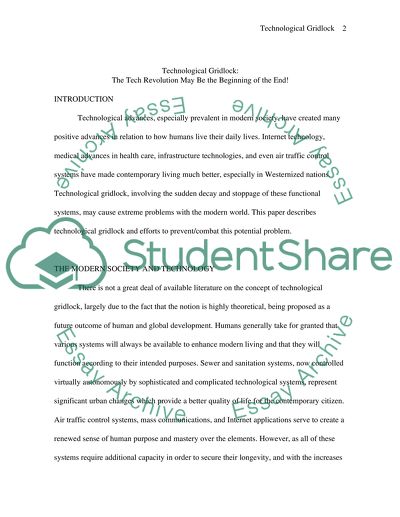Cite this document
(“Technological Gridlock: The Tech Revolution May Be the Beginning of Essay”, n.d.)
Technological Gridlock: The Tech Revolution May Be the Beginning of Essay. Retrieved from https://studentshare.org/technology/1542153-technological-gridlock
Technological Gridlock: The Tech Revolution May Be the Beginning of Essay. Retrieved from https://studentshare.org/technology/1542153-technological-gridlock
(Technological Gridlock: The Tech Revolution May Be the Beginning of Essay)
Technological Gridlock: The Tech Revolution May Be the Beginning of Essay. https://studentshare.org/technology/1542153-technological-gridlock.
Technological Gridlock: The Tech Revolution May Be the Beginning of Essay. https://studentshare.org/technology/1542153-technological-gridlock.
“Technological Gridlock: The Tech Revolution May Be the Beginning of Essay”, n.d. https://studentshare.org/technology/1542153-technological-gridlock.


